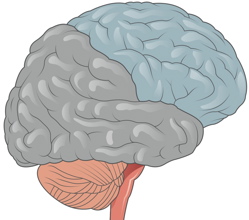Are cognitive abilities the same thing as intelligence?
Here is the second installment of questions from Brain Fitness 101: Answers to Your Top 25 Questions. To download the complete version, please click here.
Question:
Are cognitive abilities the same thing as intelligence?
Key Points:
- Cognitive abilities can be trained and improved.
- Intelligence is a score on a test that stays relatively static in adulthood.
- Cognitive processes dealing with novelty (fluid intelligence) are just as important as acquired knowledge (crystallized intelligence). It takes both to keep your mental edge.
Answer:
Not exactly. They are related and intertwined, but not the same thing.
Cognitive abilities are the brain-based skills and mental processes needed to carry out any task and have more to do with the mechanisms of how you learn, remember, and pay attention rather than any actual knowledge you have learned.
The term IQ, or Intelligence Quotient, generally describes a score on a test that rates your cognitive ability as compared to the general population. IQ tests are designed to measure your general ability to solve problems and understand concepts. There is a high positive correlation between IQ and success in school and the work place, but there are many, many cases where IQ and success do not coincide.
Because IQ tests attempt to measure your ability to understand ideas and not just the quantity of your knowledge, learning new information does not automatically increase your IQ. Intellectual ability seems to depend more on genetic factors than on environmental factors, but most experts agree that environmental enrichment plays some significant role in its development.
For the most part, adult IQ scores don’t significantly increase over time. There is evidence that maintaining an intellectually stimulating atmosphere (by learning new skills or solving puzzles, for example) boosts cognitive ability, similar to the way maintaining an exercise regimen boosts physical ability, but these changes do not necessarily have much effect on IQ scores.
Further Reading
Stanford-Binet IQ test
Wechsler Adult Intelligence Scale
Gardner’s Multiple Intelligences
Intelligent Insights on Intelligence Theories and Tests (aka IQ’s Corner)
Edward De Bono
Mensa International



I think that the point you made about IQ and success not coinciding is important to remember. I teach my students about Gardners Multiple intelligences and help them realize that other intelligences , other than the ones schools measure are very important. I maintain that Interpersonal intelligence is one of the most important ones. You need to be able to get along with people in your personal life as well as at work to be successful. I worry most about my students when they have poor people skills. INtrapersonal intelligence is also very important. I help my students to get to know their strengths, weaknesses, likes and dislikes so that hey can use that information when they have to make choices about the future careers, vacations, friends- really everything. At school everything is about reading, writing and arithmetic. In life it about relationships at home, work and play at least the way I seeit.
Elona, thanks for your comment. Have a great holiday!
Can a person have a high cognitive ability and a low I.Q. score?
Marilyn, please note that in the post we use “cognitive abilities” inn plural. While it is possible that a person with low IQ may have some specific high cognitive ability, it would be very unlikely that he or she is high in a wide range of cognitive abilities.